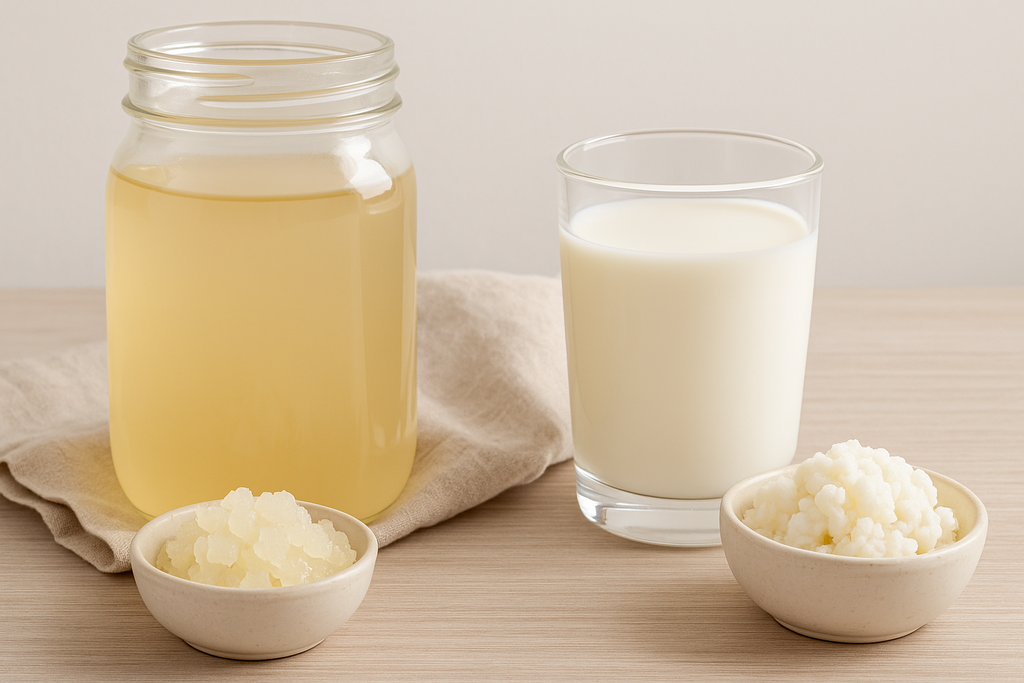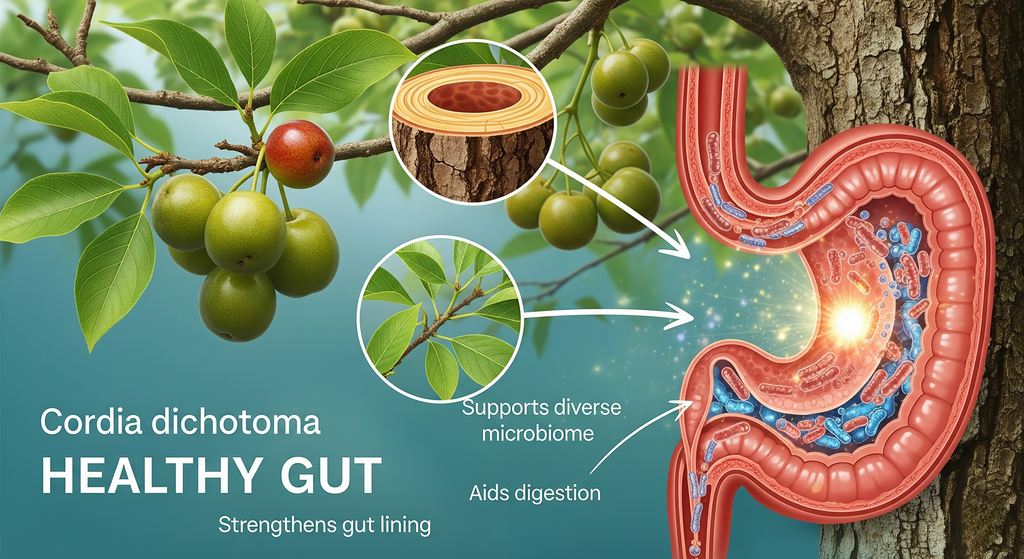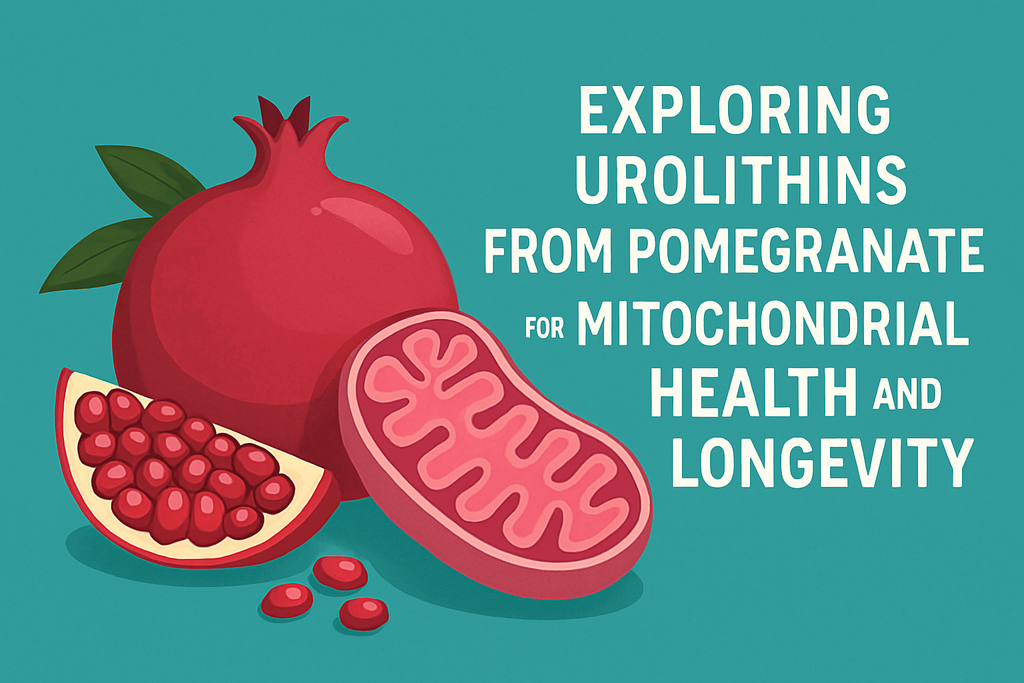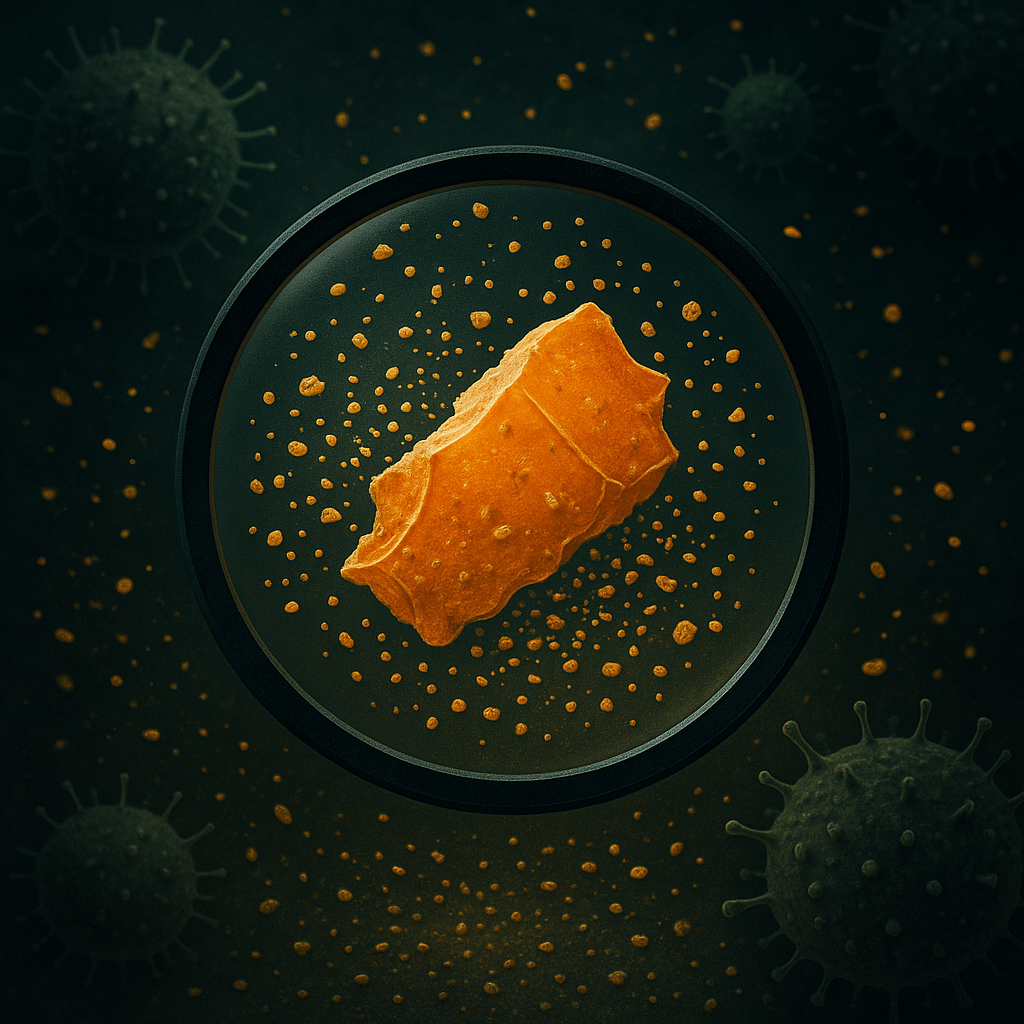News — gut microbiome
Water Kefir vs. Milk Kefir: Which One Is Healthier for Gut Health?
best kefir for gut health butyric acid dairy-free probiotics fermented drinks gut healing supplements gut microbiome how to make kefir kefir benefits kefir comparison kefir for digestion kefir for inflammation kefir for weight loss kefir vs yogurt lactose free kefir milk kefir postbiotics probiotic drinks tributyrin supplement water kefir water vs milk kefir
Probiotics have taken center stage in the world of gut health, and kefir—both water and milk varieties—stands out as a powerhouse of beneficial bacteria. These fermented beverages are fizzy, slightly sour, and packed with live cultures. But which one is healthier: the dairy-based milk kefir or its lighter, dairy-free cousin, water kefir?
The answer depends on your dietary needs, gut goals, and personal preferences. Both types of kefir offer unique health benefits, including improved digestion, enhanced immunity, and potential mood support. In this guide, we’ll compare water kefir and milk kefir across various factors—nutrition, probiotic content, digestibility, and more—to help you decide which is best for your wellness journey. And if you’re focused on optimizing gut health long-term, we’ll also introduce a postbiotic supplement like Tributyrin to complement your kefir routine.
Cordia Dichotoma Benefits: Your Guide to a Healthy Gut
anti-inflammatory antioxidants butyrate Cordia dichotoma digestive wellness gastrointestinal health glue berry gut health gut microbiome herbal medicine IBS Indian cherry leaky gut mucilaginous properties natural remedies phytonutrients polysaccharides traditional medicine Tributyrin
Cordia dichotoma, commonly known as a glue berry or Indian cherry, has been a staple in traditional medicine systems for centuries. This unassuming tree, with its small, sticky fruits, is packed with beneficial compounds that contribute to overall well-being. From its anti-inflammatory properties to its rich antioxidant content, the various parts of the plant offer a holistic approach to health, making it a subject of increasing interest in modern scientific research.
Delve into the profound benefits of Cordia dichotoma, with a special focus on its positive impact on gut health. We will explore how its unique chemical composition can help soothe digestive issues, promote a balanced microbiome, and support a robust intestinal lining. By understanding the science behind this traditional remedy, you can discover a natural way to enhance your digestive wellness and improve your quality of life.
Urolithins from Pomegranate: Boosting Mitochondrial Health and Longevity
anti-aging supplements cellular energy ellagitannins energy metabolism fisetin supplement gut microbiome healthy aging longevity mitochondrial biogenesis mitochondrial health mitochondrial support mitophagy muscle performance natural anti-aging oxidative stress pomegranate metabolites postbiotics PQQ supplement urolithin A urolithin benefits
In the search for graceful aging and vibrant cellular energy, mitochondria—the tiny powerhouses of our cells—have become a focal point of cutting-edge health science. When these energy engines falter, so does our vitality. But what if a natural compound found in a common fruit could spark mitochondrial renewal and extend the lifespan of our cells? Enter urolithins, postbiotic metabolites derived from pomegranates that are quickly gaining a reputation as game-changers for mitochondrial health and longevity.
Urolithins, especially Urolithin A, are not present in pomegranate juice itself. Instead, they’re produced by gut bacteria when ellagitannins—polyphenols found in pomegranates—are metabolized. These molecules have been shown to stimulate mitophagy (the selective recycling of damaged mitochondria), reduce inflammation, and improve muscle function in both animal models and human trials. In a world where fatigue, cognitive decline, and aging-related conditions are increasingly common, urolithins may hold a juicy secret to a longer, more energized life.
The Tiny Threat: Decoding the Health Impacts of Microplastics
blood microplastics BPA alternatives brain barrier toxins chronic inflammation clean water filters endocrine disruptors environmental toxins gut microbiome health effects of microplastics inhalation of microplastics microbeads microplastics microplastics and cancer microplastics in humans plastic in food plastic pollution plastic waste pollution health risks reduce microplastic exposure synthetic clothing
They’re in your water, your food, and even the air you breathe—yet you can’t see them with the naked eye. Microplastics, the tiny fragments of plastic less than 5 millimeters long, have quietly infiltrated every corner of the planet, including the human body. Once considered a pollution issue for oceans and wildlife, microplastics are now raising alarms in the realm of human health.
With growing research linking microplastics to inflammation, endocrine disruption, and potential long-term health effects, the question is no longer if we're exposed—but how it’s impacting us. This comprehensive guide breaks down the science, explores where these particles come from, and offers practical steps to reduce your exposure to this modern-day invisible threat.
The Link Between Gut Microbiome and Intestinal Wellness
bloating relief digestion support digestive health dysbiosis fermented foods fiber and digestion fiber fermentation gut bacteria gut health supplements gut inflammation gut microbiome gut-brain axis healthy digestion immune system intestinal wellness leaky gut microbiome balance natural gut remedy prebiotics probiotics
Deep within your digestive tract lies a dynamic and complex community of microorganisms known as the gut microbiome. Composed of trillions of bacteria, fungi, viruses, and other microbes, this internal ecosystem plays a vital role in your overall health—particularly your intestinal wellness. Far from being passive passengers, these tiny organisms actively influence digestion, immunity, inflammation, and even mood regulation.
Modern science has shed light on just how intertwined gut microbes are with our gastrointestinal health. Disruptions in this microbial balance, known as dysbiosis, can lead to bloating, constipation, diarrhea, irritable bowel syndrome (IBS), and inflammatory bowel disease (IBD). In this article, we’ll explore the intimate connection between the gut microbiome and intestinal wellness, how to recognize imbalances, and actionable strategies to nourish your gut for long-term digestive harmony.





